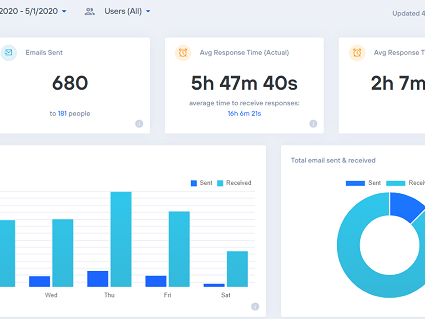Feeling Overworked? Follow these Easy Tips to Find Relief
You might enjoy your work and feel good about providing for your family. But, at the same time, you might be someone who keeps taking on new tasks, staying in the office longer, and coming home exhausted.
Enter the work-life balance. That means doing your job without overdoing it and having enough time at home to recharge for the next day.
Need help to stop the cycle of overwork? Keep reading.
Setting up the Fence
This tip is the first and possibly the toughest. Set your priorities and be committed to them. Let your coworkers know that you want to do your job well and also have time for your personal life. This means learning to say no to staying late and being on call 24/7.

For example, remind everyone that you will only be checking messages the next day when you leave for the day. This statement may shock them, so be ready for a reaction.
“Listen, Boss…”
The same principle applies when talking with the boss: make your priorities known. Present your case positively to management and keep the lines of communication open. If you’re feeling overworked, say something.

Source: Homelight/Pinterest
Your boss may not have noticed that your workload is too burdensome, and he or she may have no idea how the hours and stress affect you at home. An honest, open chat is the best way to move forward.
You Can’t Do Two Things at Once
Guess what? Multitasking doesn’t really work. You can’t actually do two things at once. In fact, what’s happening is that your brain is switching from task to task. And guess what else? This switching is exhausting and creates tension.

Your attention keeps getting broken as you move from task to task. So try to focus on one task at a time, and put the others aside. That may be challenging if you’re easily distracted by emails coming in, phone calls, and coworkers walking by. Instead, start a task, focus on it, and if someone comes by, let them know you’re busy. You can do it!
Take “Task Breaks” During the Day
Are you at your most focused and fresh in the morning? That’s when you should take on your most challenging tasks. When you need a break from intense work, do something light, like filing papers or clearing up your desk.

Whatever you do, don’t move from one intense task to another. Your brain needs to rest, and your body may also need a stretch. We often need to realize how stiff our bodies get when focusing on a tough assignment.
Head to the Coffee Machine
Sitting in your office, working intensely for hours, can make you feel like the rest of the world has disappeared. So, you need to get out of your office and interact with the rest of the staff. Discuss your work, their work, or anything at all. It will clear your head.

Your coworkers form your social network; they understand the company, the work atmosphere, and the work itself. When you connect with them, you create a community that you can call upon at any time.
Get Away from Everything
Overwork can drain you physically and mentally. Sometimes recharging in the evening isn’t enough. You might need a vacation – go away to a different location, see new sights, and rest your body and soul.

When you do take a vacation, consider establishing rules beforehand. For example, stay away from social media and work communication. Put an away message on your work email, so your clients and coworkers don’t assume you will be responding. You can even decide not to pay attention to the news. In other words, disconnect from your day-to-day life.
Un-Stress
How many times during the day do you feel stressed out? Too many? Does the stress follow you home? That stress can affect all of your relationships at work and home. It can also cause physical illness.

Now is the time to try those relaxation techniques you’ve heard about. These can include exercising, deep breathing, and even meditation. You can do this through relaxation techniques such as exercising, deep breathing, and meditation. After a session, you’ll feel some of that stress slip away.
Is it Time to Look for a New Job?
Maybe none of these tips work for you, and you can’t figure out why you feel so overworked and anxious. Have you already spoken with your boss and coworkers? Have you tried taking time off and returning to work, only to find that you are becoming anxious once again?

Imgur
Think about your work environment and ask yourself if you want to stay and deal with the atmosphere or whether it’s time to find another job. Here’s another tip – before taking on a new job, be sure to inquire about the company’s work culture!
Focus on company goals
When a company throws a whole bunch of work your way, it can be hard to prioritize it. Often, it seems like the “try to do everything” mentality takes over. Although this can be admirable in that it helps build perseverance, it’s not always the best way to go.

Imgur
Instead, focus on working smart, not hard. Reflect on what the goal of the company is, and then prioritize your work accordingly. This can help you create a to-do list with the most impactful tasks at the top and the less important stuff at the bottom.
Track how you’re using your time
If you’re moving towards a goal, then it’s essential to keep track of where you stand at the moment. If the goal is to reduce overwork, then track what you’re doing during the day. This may include messages received outside of work.

Over the course of a few days or a week, you can quickly see what activities are taking up most of your time. With that information, you can develop ways to improve efficiency, identify your most important tasks, and cut out all the extra stuff that’s dragging you down.
Reduce distracting notifications at work
One reason people work so much is that they get distracted so often. As the failure of multitasking makes clear, the human mind can only pay attention to one thing at a time.
Furthermore, when you’re working on a mentally demanding task, it takes a while to get in the
zone.

Imgur
If you’re constantly getting email notifications, that’s a surefire way to get out of the zone. The 5 to 10 minutes it takes to refocus is lost time – and that lost time quickly adds up. So, consider turning off email notifications and setting aside specific times to check your inbox.
Eat healthy food
Although food isn’t a cause of overwork and burnout, it certainly makes it much worse. For example, caffeine intake usually increases when people work long hours. Although this may give you a brief jolt of energy, it can add to your levels of anxiety and affect sleep.

Imgur
Likewise, when people are overworked, they tend to be too exhausted to cook. So, they end up getting pizza or Chinese food far too often. These unhealthy options can really affect your mood, so it’s best to try to eat extra healthily during stressful times.
